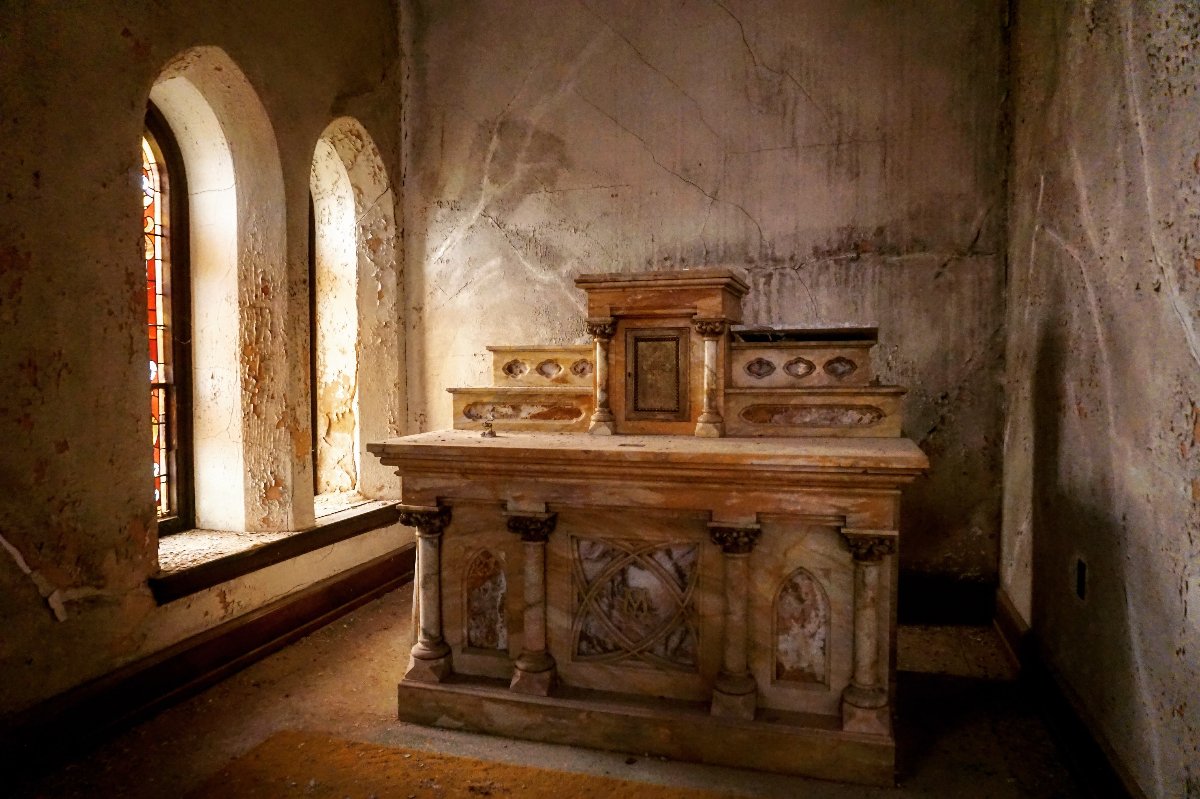From our previous 3 lessons on Building and Maintaining Personal Altar, we have established what an altar stands for both in the old testament as well as in the new covenant.
The emphasis is on the individual learning how to consistently build and maintain what is being built.
The lesson aim today is to understand what altar stands for in our lives and learning how to lay all on the Altar for God
What the personal Altar stands for in your life:
Having established that the altar is beyond physical erection or concreted platform of worship, your heart is the real centre of where altar can be raised to God. When your heart becomes your altar, its easy for God to alter so many things in your life
1. Your altar is a place to meet your God in genuine and reverential worship- Psalm 96:6; 16:11
2. Your altar represents your own time of communion with God to receive from him the specific instructions for your life- Psalm 73:17; James 1:5
3. Altar represents the place of destiny encounter with your God- Acts 9:3-6; Exodus 3:5
4. Your altar is an avenue of positive and progressive transformation as you yield to God- II Cor.3:18; Prov.4:18.
What You are to bring to your Altar:
As children of God, we are called to live a life of surrenderness and obedience to our Shepherd, Jesus Christ. In Romans 12:1-2, the apostle Paul urges us to present our bodies as a living sacrifice, holy and acceptable to God. This passage serves as a powerful reminder of the importance of laying all on the altar, surrendering every aspect of our lives to God.
1. Bring your life in whole: What God demand is your totality.
Your entire life must be laid on the altar for God. Be it your body, soul and spirit, none is no longer your own.
God can demand for them anytime. Matthew 22:37; Psalm 51:17
Laying Your Body on the Altar: every sheep must offer their own body as living sacrifice for God to use for His glory (Rom 6:13, 19; 1 Cor 6:13, 19, 20)
– Romans 12:1: “I beseech you therefore, brethren, by the mercies of God, that you present your bodies a living sacrifice, holy, acceptable to God, which is your reasonable service.”
– 1 Corinthians 6:19-20: “Or do you not know that your body is the temple of the Holy Spirit who is in you, whom you have from God, and you are not your own? For you were bought at a price; therefore glorify God in your body and in your spirit, which are God’s.”
Romans 6:13- And do not present your body’s members to sin as instruments of unrighteousness, but present yourselves to God, as those who are alive from the dead, and your members to God as instruments of righteousness.
God has brought believers “from death to life” (John 5:24). Now they must not turn again to their old master, sin, and offer their hands and feet and eyes and ears and mouth to it.
Neither sin nor themselves are to be their master, but God only. If believers fail here they will find sin ready to pounce on them and master them again.
Laying Your Soul on the Altar:- this is to yield your being, your real self is your soul & mind- Matt.22:37
2. Worship God in beauty of His Holiness-Psalm 95:6
Worship is like a worthy ship to lead you into enjoyment of presence of God.
Worship open the gate and conditions your heart to meet God.
Avoid distractions in genuine worship.
In worshipping God, let go of every other things clouding your heart.
Only those in the Spirit, can really worship God- John 4:24
3. Tangible and Acceptable offerings- Deuteronomy 16:16-17; II Cor.9:7-
No sacrifice on the altar will be complete without an offering.
God desires that no one come to Him empty-handed-
You need to offer your life, heart, your tithes, return with gratitude, the blessings of God-
Deuteronomy 16:16-17. Three times in a year all your males must appear before the LORD your God in the place which he chooses: at the Feast of Unleavened Bread, and in the Feast of Weeks, and in the Feast of Tabernacles. And they must not appear before the LORD empty-handed. Each man must give as he is able, in accordance with the blessing of the LORD your God which he gives you. Deuteronomy 16:16-17
While the specific feasts and offerings are within the context of the Old Testament covenant, the principle of not coming to God empty-handed can be interpreted in a broader sense today.
It suggests that we should approach God with a heart of gratitude and a desire to give back to Him, whether through our time, talents, or resources
Offer your service to God your maker-
A life that is not offer to God is a waste and not tangible to God.
Only when you lay everything and allow God to lay hold of you that you can be blessed of Him




